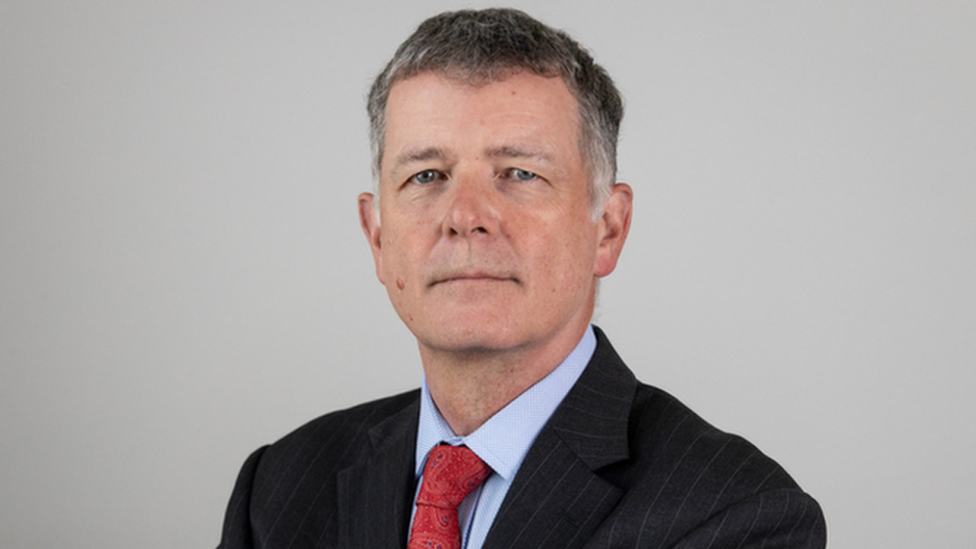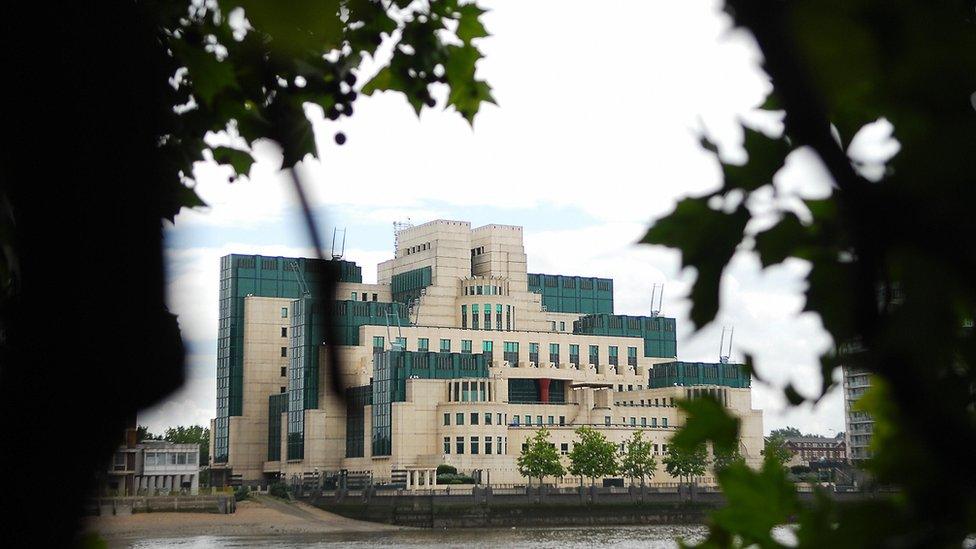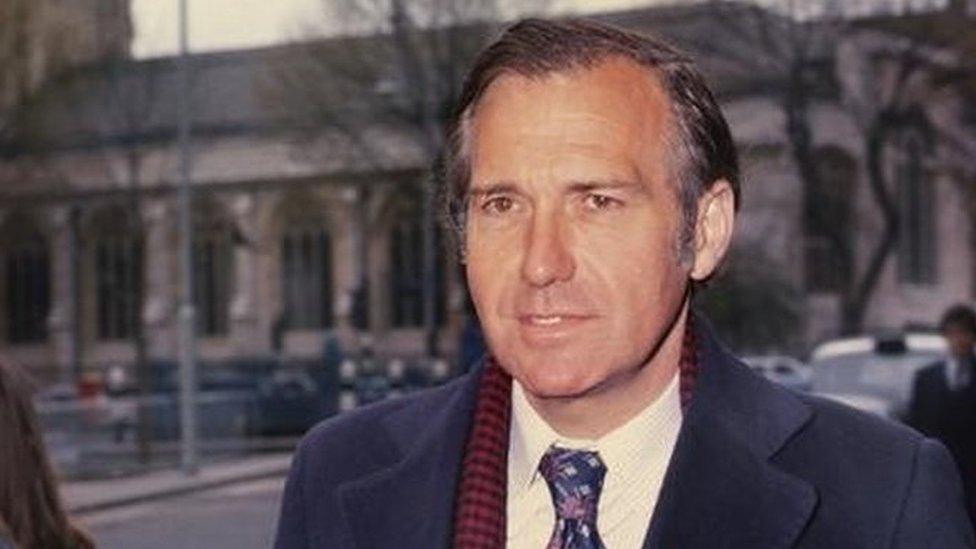MI6 must adapt to new technology to survive, says spy chief
- Published

Richard Moore says the threat and opportunities posed by new technology are "a white-hot focus" for MI6
Britain's Secret Intelligence Service, better known as MI6, must become more open in order to do its secret work effectively. That's according to its chief, Richard Moore, in his first major public speech since taking on the role in October 2020.
Artificial Intelligence (AI), quantum computing and digital technology have combined to completely transform the way human intelligence is gathered by spies, presenting MI6 with major challenges in the digital age.
Biometric data and facial recognition, for example, have made it far harder for intelligence officers to assume false identities in hostile countries without being recognised and exposed.
It was revealed in September that inside MI6 headquarters at Vauxhall Cross there is a real-life Q Section that works to provide Britain's spies with the latest gadgets to keep them safe and secret.
But on Tuesday, in addressing the London-based think tank the International Institute for Strategic Studies (IISS), Mr Moore will admit that mastering human intelligence in this era of accelerating technology is not something his service can do in its own.

MI6 spies acquire secrets from overseas targets to help protect Britain's national security
Mr Moore, who has spent 34 years working for MI6, will tell his audience it "includes being more open, and partnering with the private sector to find new technologies".
He adds that "advances in quantum engineering and engineered biology will change entire industries".
Advances here and in data science in general will have attractions for malign actors, both nation-state and trans-national terrorist groups.
"I am paid," he says, "to look at the threat side of the ledger. MI6 deals with the world as it is, not as we would like it to be".
He describes the impact of all this revolutionary technical progress as "a white-hot focus for MI6".
So where exactly does he say these threats to the UK's national security are coming from?
Mr Moore lists China, Russia, Iran and international terrorism as the "Big Four" priorities for the (West's) intelligence world.
"Our adversaries are pouring money and ambition into mastering artificial intelligence, quantum computing and synthetic biology because they know... this will give them leverage".

Artificial intelligence has transformed the way information is gathered by spies
As one of Britain's three intelligence agencies, along with the Security Service (MI5) and GCHQ, MI6's role has always been to acquire secrets from overseas targets to help protect Britain's national security.
While human intelligence - old-fashioned spying - has been at the heart of its work, the MI6 chief points to his service's innovations over time. Examples he cites are "from the chemistry that enabled us to produce secret writing technologies in the early days, to the wireless and secure speech technologies we developed during the Second World War".
Today, he says, MI6 is a founding member of the UK's unified cyber command which counters state threats, terrorists and criminals and supports military operations.
This speech could perhaps be seen as a belated admission that if it is not careful, MI6 risks getting left behind by the breakneck speed of advances in digital technology.
"We cannot hope to replicate the global tech industry, so we must tap into it," he says. "
Through the National Security Strategic Investment Fund we are opening up our mission problems to those with talent in organisations that wouldn't normally work with national security."
But such a sea change in the way MI6 works will not go unnoticed by Britain's adversaries. Going into partnership with others outside the closed world of career spies, whose lifelong mantra has been secrecy, brings with it an inherent risk of leaks or worse, however thoroughly people are vetted.
MI6 may have no other choice but to go down this route - but it is still a bold move that could present the UK's enemies with some interesting opportunities.
Related topics
- Published30 September 2021

- Published28 February 2021

- Published11 December 2020

- Published27 July 2021
